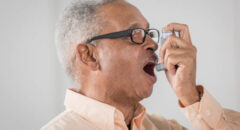
For people living with chronic obstructive pulmonary disease (COPD), doing everything it takes to breathe properly is a priority. While you’ll have a medication protocol to follow, your doctor might also suggest undergoing pulmonary rehabilitation. This is a form of treatment that can be essential to living a full life with COPD.
What’s Pulmonary Rehabilitation?
Pulmonary rehabilitation is a medically supervised program that helps people with lung diseases live more fulfilling lives. This program generally includes learning about breathing exercises, maintaining fitness, adjusting your daily behavior, and improving your overall nutrition.
When enrolled in the program, you may work with doctors, nurses, physical therapists, respiratory therapists, exercise specialists, and dietitians. It also encourages taking part in group activities so you’ll get support and advice from those who are dealing with similar situations.
Who Qualifies For This Treatment
Usually, anyone who has had COPD for more than a year can qualify for pulmonary rehabilitation. All that’s required is for your doctor to refer you to a program of your choice. Of course, your doctor might have their own criteria for giving you a referral. These criteria can include having worsening symptoms and not responding to medication as well as you used to.
RELATED: Improving Lung Function: 10 Things to Know About Pulmonary Rehab
How Rehabilitation Can Help You
Pulmonary rehabilitation is designed to be a well-rounded program that can help you regain your strength, carry out your daily activities, work, and remain social. It does this by combining exercises, breathing techniques, a nutrition program, support, education about your medication regimen, and stress management.
Some of the exercises that you can expect include leg exercises like walking or climbing stairs, upper body exercises like turning cranks, and strength training like weight lifting.
Breathing techniques are also used to steadily increase your lung capacity, help you remove mucus from your lungs, and improve your lung function. These alone can help you carry out your job and other everyday activities more easily with COPD.
For some people, managing their weight will be essential to maintaining proper lung function so having a personalized nutrition plan can help with that. Given that studies show how having COPD can negatively affect your mental health, having the support of therapists and your peers can have a positive impact as well. In fact, people who have that kind of support are less likely to suffer from the anxiety and depression that are associated with COPD.
It’s important to note that working out with a physical therapist or another medical professional can still have its risks. Sometimes, the suggested exercises can put a strain on your muscles and bones. In that case, the team will stop the routine to








